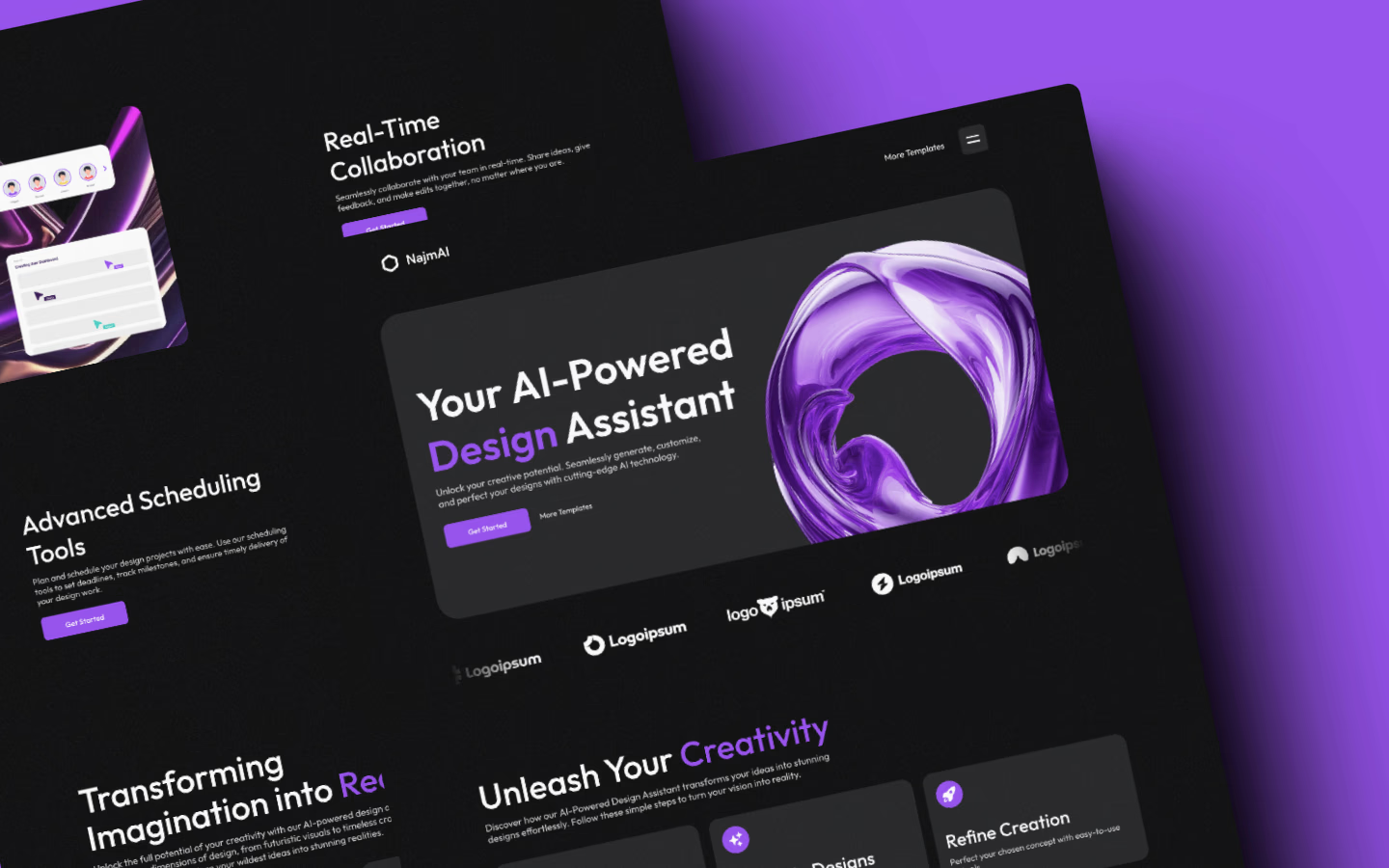
28 Feburary 2025
A Beginner’s Guide to JavaScript Frameworks: React, Vue, and Angular
What are JavaScript Frameworks?
• JavaScript frameworks are pre-built libraries of code that help developers build complex web applications faster and more efficiently.
• They provide tools, utilities, and best practices to structure your code, making it more maintainable and scalable.
• React, Vue, and Angular are three of the most popular JavaScript frameworks currently in use.
Introduction to React
• React is a JavaScript library developed by Facebook for building user interfaces, particularly single-page applications (SPAs).
• React uses a component-based architecture, meaning the user interface is broken down into reusable pieces (components).
• One of the key features of React is its virtual DOM, which efficiently updates the user interface by only re-rendering the components that have changed.
• React is widely known for its flexibility, as it can be used with other libraries or frameworks, and works well with other tools like Redux for state management.
When to Use React
• React is great for building SPAs where you need fast, dynamic updates to the UI.
• It’s ideal for projects that require a highly interactive user interface or when the app needs to be easily maintainable with reusable components.
• If you have a team of developers familiar with JavaScript and need a flexible framework to build a wide variety of web applications, React is a solid choice.
Introduction to Vue
• Vue is a progressive JavaScript framework used for building user interfaces and single-page applications.
• Vue was created by Evan You and is designed to be simple and approachable for developers of all skill levels.
• Vue’s core library focuses on the view layer only, making it easy to integrate with other libraries or existing projects. It also provides features like directives, data binding, and a powerful template system.
• Vue has a simple learning curve compared to Angular, making it a popular choice for beginners and developers who prefer flexibility.
When to Use Vue
• Vue is an excellent choice if you want a lightweight, flexible framework for building user interfaces or SPAs.
• It's ideal for developers who are new to front-end development because of its simplicity and clear documentation.
• If you’re working on a project that doesn’t require the complexity of Angular but needs more structure than plain JavaScript, Vue is a great option.
Introduction to Angular
• Angular is a full-featured framework developed by Google for building large-scale, complex web applications.
• Unlike React and Vue, Angular is a comprehensive framework that provides everything you need to build a web application, including routing, form handling, and state management out of the box.
• Angular uses TypeScript, a superset of JavaScript that provides type safety and advanced features like classes and interfaces.
• Angular is known for its strong community support and its opinionated approach, meaning it has strict guidelines for how applications should be structured.
When to Use Angular
• Angular is ideal for building large, enterprise-level applications where scalability, maintainability, and team collaboration are key factors.
• If you prefer a full-featured framework that provides built-in solutions for routing, forms, and state management, Angular may be the best choice.
• It’s a good option if your project requires advanced features such as dependency injection, type safety with TypeScript, and a high degree of structure and organization.
React vs Vue vs Angular: Key Differences
• React is a library focused on building user interfaces with flexibility and ease of integration, while Vue is a lightweight framework with a focus on simplicity and ease of use.
• Angular is a complete framework that offers a full suite of tools for building complex web applications but has a steeper learning curve due to its opinionated nature and use of TypeScript.
• React and Vue are generally more lightweight and allow developers to choose additional tools as needed, while Angular provides a more structured approach, with everything built-in.
Choosing the Right Framework
• If you're working on a large-scale enterprise application with strict requirements, Angular might be the best choice due to its all-in-one nature and strong support for TypeScript.
• For projects that need flexibility and ease of integration, React is a solid choice, especially if your team is already familiar with JavaScript.
• If you’re a beginner or need a simple, flexible framework that’s easy to learn, Vue is an excellent option that strikes a good balance between structure and flexibility.
Conclusion
• React, Vue, and Angular are all powerful JavaScript frameworks that cater to different needs in web development.
• React is great for building interactive UIs with flexibility, Vue is ideal for beginners or smaller projects, and Angular is best suited for large, complex applications.
• By understanding the strengths and weaknesses of each framework, you can choose the one that fits your project and team’s needs the best, leading to a more efficient and successful development process.
More Article

March 22,2025
Mastering Responsive Design

March 22,2025
Improving Web Performance

March 22,2025
Understanding CSS Grid and Flexbox

March 22,2025
Modern Frontend Development Best Practices
©Amit Dhangar all rights reserved